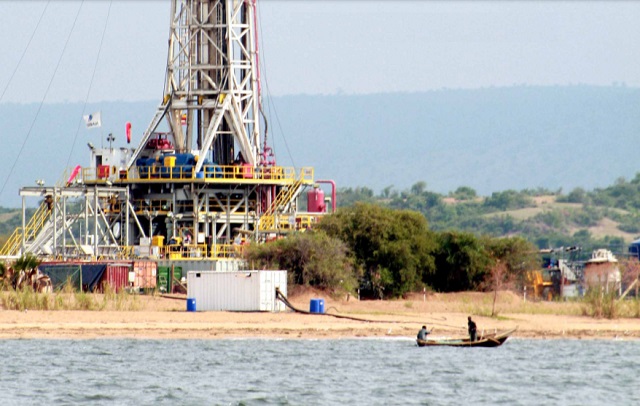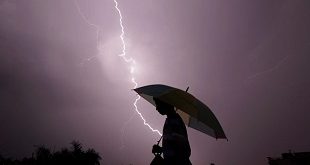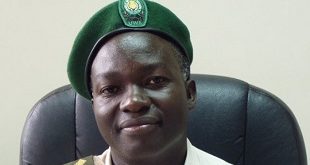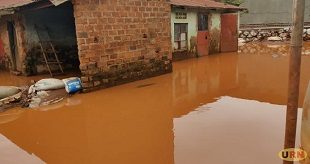
Kikuube, Uganda | THE INDEPENDENT | The Petroleum Authority Uganda-PAU says investors in oil and gas must adhere to environmental, social, and governance concerns or face hefty fines and penalties.
The authority’s director of environment, health, safety, and security, Dr. Joseph Kobusheshe says that whoever is looking at opportunities in the Albertine graben must know that it will not be about making profits at the expense of the environment and livelihoods of the people.
“As you make money don’t focus on quick money. Make sure that your business is focused on making money for today, tomorrow, and for ten years to come. As we make money in oil and gas, we don’t affect a fisherman in Buliisa,” said Kobushehe who was one of the panelists at the just-concluded Third Annual National Content Conference.
While the conference was aimed at ensuring that oil and gas companies adhere to the national content requirements, concerns about the environment and social issues kept on coming up.
According to Kobusheshe, environmental, social, and governance (ESG) requirements have been adopted as part of the best practices in oil and gas operations.
“It has become an important measure of sustainability and ethical impact of the way we conduct business. If anyone has been looking at ESG as a cost, it is not that way. ESG should not be looked at as a cost or a hindrance but rather as a business opportunity,” advised Kobusheshe.
The development of Uganda’s oil and gas sector is attracting global attention with the debate about the energy transition. The oil and gas sector at a global level has been blamed for playing a major role in the destruction of the environment.
Some studies have estimated that oil and gas operations account for 9% of all human-made greenhouse gases. Others have found that the burning of fossil fuels produces 33% of global emissions.
Amid growing concerns and activism against Uganda’s oil and gas development in Tilenga and Kingfisher, the Petroleum Authority and the oil and gas Companies are ensuring that the developments at all levels adhere with environmental, social, and governance (ESG) goals. The issues go beyond the environment to include, child labor, exploitation of workers, and human rights among others.
ESG has transcended from being a tick-box exercise for oil and gas firms and their subcontractors. It is part of the scores in the tendering processes.
According to Kobusheshe, investors are now looking for disclosure of ESG-related issues supported by quantitative data to garner capital.
“Biodiversity is a very important aspect, especially for Uganda’s oil and gas sector because obviously in the area where we operate,” said Kobusheshe. This is the only way that we can create a lasting value. Not the boom from oil and gas today that affects future generations.
”Some civil society groups have expressed fear about the likely pollution of Lake Albert and Lake Victoria because of the various discharges from oil and gas operations.
The Kingfisher project operated by CNOOC will have well pads and most of its infrastructure on the shorelines of Lake Albert in the Buhuka escarpment area.
The joint venture partners in Uganda’s oil and gas sector, TotalEnergies, CNOOC, and Uganda National Oil Company in February took an FID for the developments in the Albertine and the East African Crude Oil Pipeline (EACOP).
The EACOP project has since then been in the limelight with its opponents claiming that it’s construction is likely to displace tens of thousands of people, and endanger the critical ecosystems of the Lake Victoria basin.
The National Environment Management Authority approved the EACOP Environment Social Impact Assessment in 2020. The head of the oil, gas, and extractive sector at NEMA, Isaac Ntujju said EACOP has suffered a lot of negative publicity based on misinformation.
“Much of the information out there is not based on facts. The facts are available with the ESIA. And we should not fear the Giant that is not yet born. I think much of it is based on perception and fear that a giant will be born,” said Ntujju
Campaigners have alleged that the nearly 1,445-kilometer pipeline would run through numerous important habitats and nature reserves – home to a number of iconic and endangered animals, such as lions, elands, lesser kudu, buffalo, impalas, hippos, giraffes, roan antelopes, sitatungas, sables, zebras, aardvarks, and the red colobus monkey
John Habumugisha, Deputy Managing Director/GM Uganda Branch East African Crude Oil Pipeline Ltd said anything being done around EACOP must be stringently compliant with the ESG requirements. “So there is no doubt that EACOP is and will continue to be one of the most stringently compliant projects,” said Habumugisha.
With the winds of change howling in the world of the oil and gas industry, Habumugisha revealed that for EACOP meeting environmental, social and corporate governance (ESG) standards is key despite the delay in compensation of project affected persons.
“In Uganda, in terms of the environment, we avoided most of the sensitive areas. There were a few swamps where we had to pass. When you are going through swamps and rivers, the design levels are quite stringent that the system ensures that we don’t have spillage” said Habumugisha.
According to the EACOP designs, the pipeline will be buried 1.2 meters below the surface. According to Habumugisha once the pipeline is fully buried below the surface, it will be hard for one passing over it to realize that it is buried there.
“For those who have heard that we are going to pollute Lake Victoria, that is not true. We have a lot of systems planned. We have intrusion detection, leak detection, we have surveillance and solarisation,” he said “Solarisation is about the environment again. What it man is that when you do any project, it will have a footprint. So we will have 100 megawatts of solar energy installed on this project. So EACOP could be the most green pipeline globally.”
A group of the anti-EACOP lobby in March met with Pope Francis at the Vatican to seek his support to stop the construction of the EACOP. It has emerged as one of the challenges that Uganda and Tanzania have to overcome according to Habumugisha.
“There is a process to ensure that information that reaches the church is accurate. The worst thing you can do is to misinform the faithful. So we are providing them with facts so that they are better informed so that they communicate appropriately,” he revealed.
EACOP pipeline will cross Tala forest reserve. That fact has generated concerns by environmental groups claiming that it will threaten a number of plant and animal species. Habumugisha does not deny that the pipeline has been routed through that forest reserve.
“We are passing through an area that is not forested. The key issue is that if we have any footprint where we pass, we shall ensure that it is improved,” he said.
*****
URN
 The Independent Uganda: You get the Truth we Pay the Price
The Independent Uganda: You get the Truth we Pay the Price



